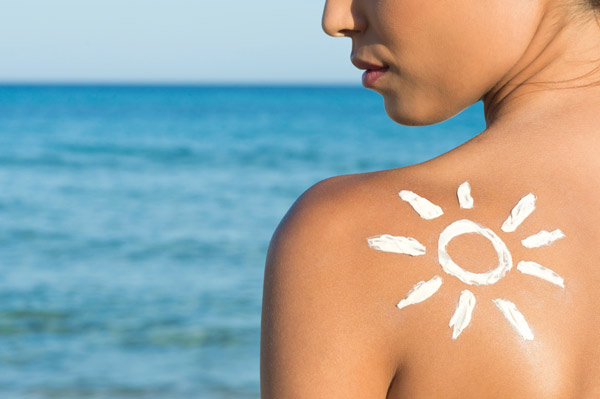Top 5 Reasons Why You Should Always Wear Sunscreen

I’ve always been the girl that preaches to everyone that they should wear sunscreen, even in winter, you need it. There are an alarming amount of people who brave the UV rays without applying sunscreen. Isn’t skin cancer scary enough?
What straight-up advice (or words of caution) can you offer people who never wear sunscreen?
You will regret not having worn sunscreen when you look at your skin compared to friends and family who have worn daily sunscreen 20 years from now.
What are the top five reasons you believe everyone should wear sunscreen?
1. The ozone layer is depleting and your body needs shielding from harmful rays. The more we pollute the air the more global warming we have, the more we have unusual and unexpected weather. With the ozone layer depleting at the rate that it is your skin is exposed to more harmful rays than the usual.
2. Sunscreen rates are on the rise and sunscreen has been proven to decrease the development of skin cancer. You are also indirectly taking care of your skin, less freckles etc.
3. It helps to prevent facial brown spots and skin discolorations. Sunscreen keeps the skin healthy and contributes to having healthy looking skin and conserves the colour of your skin.
4. It also helps to reduce the appearance of facial red veins and blotchiness.
5. It slows down the development of wrinkled, premature aging skin. No one wants to look 35 where in actual fact you’re only 22, yes sunscreen can help make you look younger.
What about the need for obtaining vitamin D via the sun?
Most people can fulfill their vitamin D requirements of 600 IU or 15mcg per day with normal daily outdoor activities amounting to five to 30 minutes twice per week. Equally, a healthy vitamin D rich diet of fish, milk, dairy, liver, eggs and vitamin D supplementation provides daily requirements. Prolonged sun exposure gives no extra production of the necessary amount of vitamin D, and it exposes the skin to the harmful effects of ultraviolet radiation which includes development of skin cancers and photo damage.
Apparently there are medications that increase risks of sun burns and damage. How is this?
There are many medications which may make the skin extra susceptible to sun. These include anti-inflammatory, cardiovascular and acne medications. Oral medications Doxycycline and Minocycline used in the treatment of acne may cause skin problems when exposed to direct and prolonged UV. Isotretinoin, popularly called Accutane, is a vitamin A derived medication which may make your skin burn easily. Topical acne products, such as vitamin A derived tretinoin and benzoyl peroxide, may make certain skin types burn easier through photosensitisation and irritation, respectively.
Are there any natural sunscreen alternatives that don’t leave behind a garish white film from the zinc oxide?
Yes, the newest kids on the sunscreen block are tinted mineralised zinc and titanium oxide formulations which bronze the skin or can be matched to skin color.
What is your expert take on spray-on sunscreens?
Time savers! Yes! Spray-on sunscreen has an important role in the sun defense arsenal. Most people specifically like it for the outdoor enthusiast, who needs to reapply every two hours daytime sunlight, and also for people who don’t like the feel of lotion on their hands.
Is there harm in using expired sunscreen?
Expired sunscreen has literally fallen apart, so the formulation no longer works as a sun protectent. You get zero sun protection. In addition, you may experience changes in the color and consistency of the product. Skin irritation may occur from an expired product.
Avoid using expired sunscreen and make sure you use enough sunscreen when you do use it. SPF 20 doesn’t do much for one because this means you should reapply it every 20 minutes, it’s advisable to use SPF50 where you only have to reapply it at least every hour. The higher the SPF the greater the protection.
Mbali Ntuli





